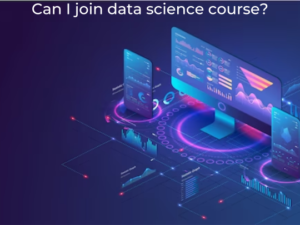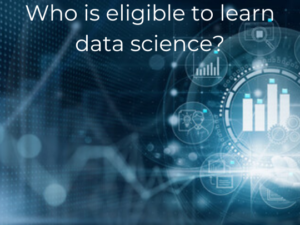Table of Contents
ToggleNo, data science is not only about coding. While coding is an important aspect of data science, it is just one of the many skills required in this field. Data science encompasses a broad range of activities, including data collection, data cleaning and preprocessing, statistical analysis, machine learning, data visualization, and communication of results.
Here are some key components of data science beyond coding:
Data Acquisition and Cleaning:
Data scientists need to collect and prepare data for analysis. This involves understanding data sources, data cleaning, handling missing values, and transforming data into a suitable format for analysis.
Statistical Analysis:
Data scientists use statistical techniques to analyze and interpret data. This includes exploratory data analysis, hypothesis testing, regression analysis, and other statistical modeling techniques.
Machine Learning:
It involves using algorithms and statistical models to train predictive models on data and make predictions or classifications. While coding is required to implement and fine-tune machine learning algorithms, understanding the underlying concepts and selecting appropriate models is equally important.
Also, check this advanced data science course in Pune to start a career in Data Science.
Data Visualization:
Data scientists need to effectively communicate their findings and insights. Data visualization helps in representing complex data and patterns in a visual format that is easier to understand. Tools like matplotlib, ggplot, and Tableau are commonly used for data visualization.
Domain Knowledge:
Data scientists often work on problems in specific domains such as finance, healthcare, marketing, or transportation. Understanding the domain and the context of the data is crucial for interpreting results accurately and making meaningful recommendations.
Communication and Presentation:
Data scientists must possess strong communication skills to effectively convey their findings to stakeholders, clients, or non-technical audiences. This involves preparing reports, presentations, and visualizations that are clear, concise, and actionable.
Data Exploration and Feature Engineering:
Before applying machine learning algorithms, data scientists need to explore the data to gain insights and identify patterns. This involves understanding the characteristics of the data, identifying relevant variables, and creating new features that may improve model performance. Feature engineering requires a deep understanding of the data and domain expertise.
Looking forward to becoming a Data Scientist? Check out the data science course fees and get certified today.
Experimental Design:
In some cases, data scientists need to design experiments to gather data and test hypotheses. This involves determining sample sizes, defining control and experimental groups, and selecting appropriate metrics to measure the impact of interventions or changes.
Data Governance and Ethics:
Data scientists need to be aware of ethical considerations and data governance principles. This includes handling sensitive data responsibly, ensuring privacy and security, and complying with relevant regulations and policies.
Problem Formulation and Project Management:
Data science projects often involve understanding business problems and formulating them into well-defined analytical questions. Data scientists need to collaborate with stakeholders to understand their needs, set project goals, manage timelines, and deliver actionable insights.
Continuous Learning and Keeping Up with Advancements:
Data science is a rapidly evolving field. Continuous learning through reading research papers, attending conferences, and participating in online courses is crucial to remain at the forefront of the field.
Data Science is a promising career option. Enroll in the Masters in which is the best data science course in Bangalore Program offered by 360DigiTMG to become a successful Data Scientist.
Learn the core concepts of the Data Science Course video on YouTube:
Collaboration and Teamwork:
Data scientists often work in interdisciplinary teams alongside domain experts, data engineers, and business stakeholders. Effective collaboration and teamwork skills are essential to ensure successful project outcomes.
Data Wrangling and Data Integration:
Data scientists often deal with messy and disparate data from various sources. They need to have skills in data wrangling, which involves cleaning, transforming, and reshaping data to make it suitable for analysis. Data integration is also important when combining data from different sources to create a unified dataset for analysis.
Big Data Technologies:
With the increasing volume, variety, and velocity of data, data scientists often work with big data technologies such as Hadoop, Spark, and distributed computing frameworks. Understanding how to leverage these technologies to process and analyze large-scale datasets efficiently is essential.
Experimental Evaluation and Model Validation:
Data scientists need to evaluate the performance of their models and validate their findings. This involves designing appropriate evaluation metrics, conducting experiments, and performing rigorous validation to ensure the reliability of the results.
360DigiTMG offers the learn data science with python course in Chennai to start a career in Data Science. Enroll now!
Optimization and Decision-Making:
Data scientists are often tasked with optimizing processes, resources, or strategies based on data insights. This requires understanding optimization techniques, mathematical modeling, and decision-making frameworks to identify the best possible solutions.
Soft Skills:
In addition to technical skills, data scientists benefit from strong soft skills such as critical thinking, problem-solving, and creativity. These skills help in approaching complex problems, thinking outside the box, and finding innovative solutions.
Business Understanding:
Data scientists need to understand the business context and goals behind their analyses. They should be able to translate technical findings into actionable insights and recommendations that align with the organization’s objectives.
Experimentation and A/B Testing:
Data scientists often design and conduct experiments, including A/B testing, to evaluate the impact of changes or interventions. Understanding experimental design principles, sample size determination and statistical analysis of experimental results are essential for valid and reliable experiments.
Become a Data Scientist with 360DigiTMG data science summer training in Hyderabad. Get trained by the alumni from IIT, IIM, and ISB.
Data Storytelling:
Data scientists must be able to communicate their findings effectively to non-technical stakeholders. Data storytelling involves presenting data-driven insights in a compelling and understandable manner, using visualizations, narratives, and storytelling techniques to engage the audience.
Data Management and Database Systems:
Data scientists need to have a solid understanding of database systems and data management principles. This includes knowledge of SQL (Structured Query Language) for querying and manipulating data, as well as familiarity with database concepts such as data modeling, indexing, and optimization.
Data Governance and Quality Assurance:
Data scientists must ensure the quality and reliability of the data they work with. This involves establishing data governance frameworks, implementing data quality checks, and addressing issues such as data completeness, accuracy, consistency, and integrity.
Time Series Analysis:
Time series data, which captures observations over time, is common in many domains. Data scientists should be familiar with time series analysis techniques, including forecasting, trend analysis, seasonality detection, and anomaly detection.
Data Science Placement Success Story
Natural Language Processing (NLP):
NLP deals with the interaction between computers and human language. Data scientists can leverage NLP techniques to extract insights from text data, perform sentiment analysis, build chatbots, or develop language translation models.
Cloud Computing:
Cloud platforms, such as Amazon Web Services (AWS), Microsoft Azure, and Google Cloud, offer scalable and cost-effective solutions for data storage, processing, and analysis. Data scientists should have knowledge of cloud computing concepts and tools to leverage these platforms effectively.




